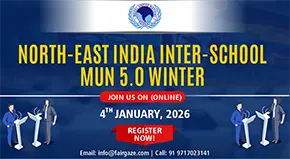
How Do I Prepare For MUN?
Thorough preparation and understanding MUN procedure are essential for a successful Model UN conference, as it enables you to deliver well-informed speeches, construct compelling arguments during negotiations, and draft innovative and realistic resolutions on your committee's topics. This preparation involves conducting research not only on your assigned country but also on the specific agenda topics. Considering the vast amount of information involved, it is impractical to attempt memorization.
Here's a systematic breakdown of the conference preparation timeline:
Before the Conference:
- Familiarize yourself with your country:
- Identify your country's official name and locate it within its respective region of the world.
- Understand the size of your country in terms of square miles and its neighbouring countries.
- Explore the physical features and climate of your country, providing a brief description.
- Research the historical background, including the founding year and the type of government in place.
- Learn about prominent leaders and the size of your country's military.
- Identify your country's allies and enemies, if applicable.
- Gather information on the population, ethnic composition, official language, and other spoken languages.
- Identify the capital city and major cities within your country.
- Gain an understanding of the quality of life and socioeconomic indicators, such as Gross Domestic Product (GDP).
- Study the physical geography:
- Explore the natural resources available in your country.
- Understand the currency used and identify major imports and exports.
- Research your country's significant trading partners.
- Dive into politics and government:
- Understand the structure and functioning of your country's political system.
- Familiarize yourself with key political parties, institutions, and branches of government.
- Research any recent political developments or major policy initiatives.
- Explore the cultural aspects:
- Study the cultural heritage, traditions, and customs of your country.
- Learn about important festivals, celebrations, or events.
- Understand the cultural diversity and its impact on society.
- Gain insights into the economy:
- Research the major industries and sectors contributing to your country's economy.
- Understand the economic challenges and opportunities your country faces.
- Study key economic indicators, such as employment rates, inflation, and economic growth.
Conducting Background Research on the Topic:
Once you have completed researching your assigned country, it is crucial to delve into the specific topics and MUN procedure that will be discussed during the conference. It is essential to establish a solid foundation of knowledge about the topic before analyzing your country's perspective. Various resources available on UN websites and the internet can provide valuable insights into your chosen topic. Even platforms like Wikipedia can serve as a starting point, as they often provide references at the bottom of the page, leading you to further information sources.
To adequately prepare for committee sessions on the first day of the conference, it is advisable to acquire a comprehensive understanding of the historical context surrounding the topic. This includes identifying the key events, causes, and impacts associated with the issue being discussed. A well-rounded knowledge of these aspects will enable you to contribute effectively and confidently during committee deliberations.
Researching Past International Action and Country Policy:
To effectively represent your country at the UN, it is crucial to understand two key aspects: the previous actions taken by the international community regarding the topic and your country's stance on the issue.
To explore past international action, you can consult news sources, review previous UN reports, and examine resolutions related to the topic. The UN Official Documentation Services can provide valuable insights into the actions already undertaken by the UN on the given subject.
Similarly, researching your country's policy on the issue involves examining official government websites, foreign ministry statements, and statements or actions from your country's UN mission. These sources can provide information on your country's position and actions related to the topic under discussion.
Also Read: Model United Nations
Researching Solutions:
While UN and government websites can provide insights into past actions, they may not offer comprehensive solutions to the issues being researched. However, Non-Governmental Organizations (NGOs) can serve as valuable resources for finding potential solutions to the topic. Additionally, Think Tanks and University Researchers often publish ideas and proposals on how to address these issues. Exploring their work can be a great way to generate ideas and brainstorm potential solutions.
Ultimately, your creativity plays a crucial role in envisioning how the UN and Member States can collaborate realistically to address the issue at hand. Consider innovative ways to combat the problem and develop a plan that outlines how these solutions could be implemented effectively.
By systematically addressing these areas of preparation, you will develop a comprehensive understanding of your assigned country and MUN procedure. This knowledge will enable you to engage in informed discussions, negotiate effectively, and draft resolutions that are both innovative and realistic during the Model UN conference.
Related Blogs
-
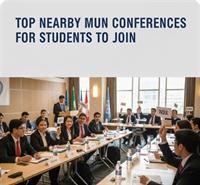
24-Dec-2025 Top Nearby MUN Conferences for Students to Join
-
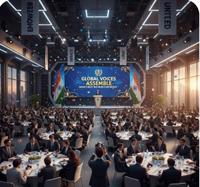
27-Nov-2025 Global Voices Assemble India Next Big MUN Conference
-
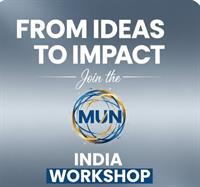
13-Nov-2025 From Ideas to Impact Join the MUN India Workshop
-
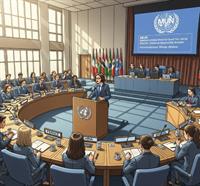
14-Aug-2025 What Is A Conference In MUN?
-
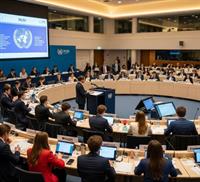
07-Aug-2025 What Does the MUN Do?
-
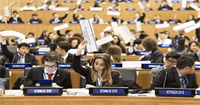
03-Jul-2025 Ways to Research for a Model UN Position Paper
-
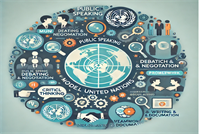
28-Mar-2025 What skills do you gain from Model United Nations?
-
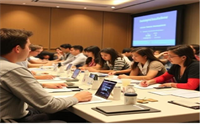
19-Mar-2025 MUN Near Me Upcoming Conferences and How to Register

